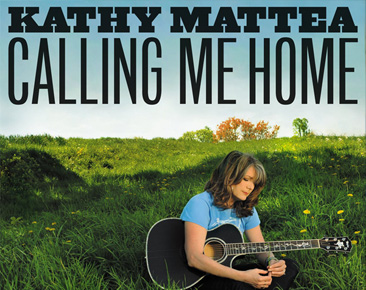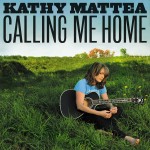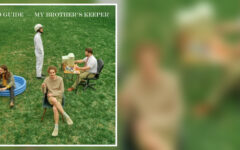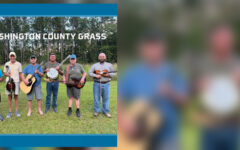
 Traditional musicians, particularly folk artists, have long been known for their tendency to write and record songs of protest. Most musicians today are not quite as outspoken and often choose to celebrate the things that make America great, rather than speak out against the things which they may see as problems. One current traditional musician who is using her talents to subtly voice her opinion on current issues is Kathy Mattea, who has recently released a new album, Calling Me Home, on Sugar Hill Records.
Traditional musicians, particularly folk artists, have long been known for their tendency to write and record songs of protest. Most musicians today are not quite as outspoken and often choose to celebrate the things that make America great, rather than speak out against the things which they may see as problems. One current traditional musician who is using her talents to subtly voice her opinion on current issues is Kathy Mattea, who has recently released a new album, Calling Me Home, on Sugar Hill Records.
Mattea is probably best known to most country music fans from her chart-topping success in the late 1980s and early 1990s with such songs as Eighteen Wheels and a Dozen Roses. However, in recent years she has returned to her West Virginia roots, performing music which is a mixture of folk, bluegrass, and old-time and speaks of a social issue which is close to her heart: coal mining. With the release of Coal, a collection of mining-related songs, in 2008, Mattea proved that she loves the mountains she was raised in and the people who live there. Around the same time, she also began presenting “My Coal Journey,” which combines a discussion of environmental activism with the story of her research for the Coal album. She has continued in that vein with her latest release, a collection of twelve songs displaying her need to speak out about environmental issues and her love of the mountains.
The songs Mattea chose to include on Calling Me Home are not specifically protest songs. They are songs about life in the country, but not the pickup trucks and cut-off jeans of most modern country songs. Instead, these songs show both the positives and negatives of modern progress which residents of Appalachia struggle with each day. One song which sums this up this is Hello, My Name is Coal, written by Larry Cordle and Jenee Fleenor (and also included on Cordle’s most recent album, Pud Marcum’s Hangin). It captures how coal is both “a scoundrel and a saint” to the people of the mountains – how it creates jobs for many, but is dangerous work that many do for very little pay.
Jean Ritchie’s composition Black Water speaks of the destruction which can come from surface mining, including strong lyrics contrasting nature before and after the mining. Two mournful tunes by Laurie Lewis (The Maple’s Lament and The Wood Thrush’s Song) also deal with the destruction of the environment when progress arrives. West Virginia Mine Disaster (also written by Ritchie) depicts the pain felt by a woman whose husband may have been killed when a mine flooded.
Other songs focus on the traditional bluegrass theme of the need to go home. Hazel Dickens’s West Virginia, My Home is a touching song about someone who regrets trading in the country for a life in the city, while the album’s opening track, A Far Cry, is filled with guilt over the true love the singer left behind her in Virginia.
Mattea has assembled an all-star group of musicians to help her on this recording, including Bryan Sutton, Stuart Duncan, Jon Randall Stewart, Patty Loveless, Randy Kohrs, and Emmylou Harris, just to name a few. Many of the songs are stripped down arrangements, suiting their somber lyrics. Overall, the collection has a folk feel, with a few tunes, such as A Far Cry featuring more of a bluegrass style. Mattea’s vocals are calm but capture the emotions of these songs perfectly, from anger to sadness to despair.
For more information on Mattea, her music, and her speaking engagements, visit her website at www.mattea.com.
Calling Me Home can be purchased from her website, as well as iTunes and Amazon.







